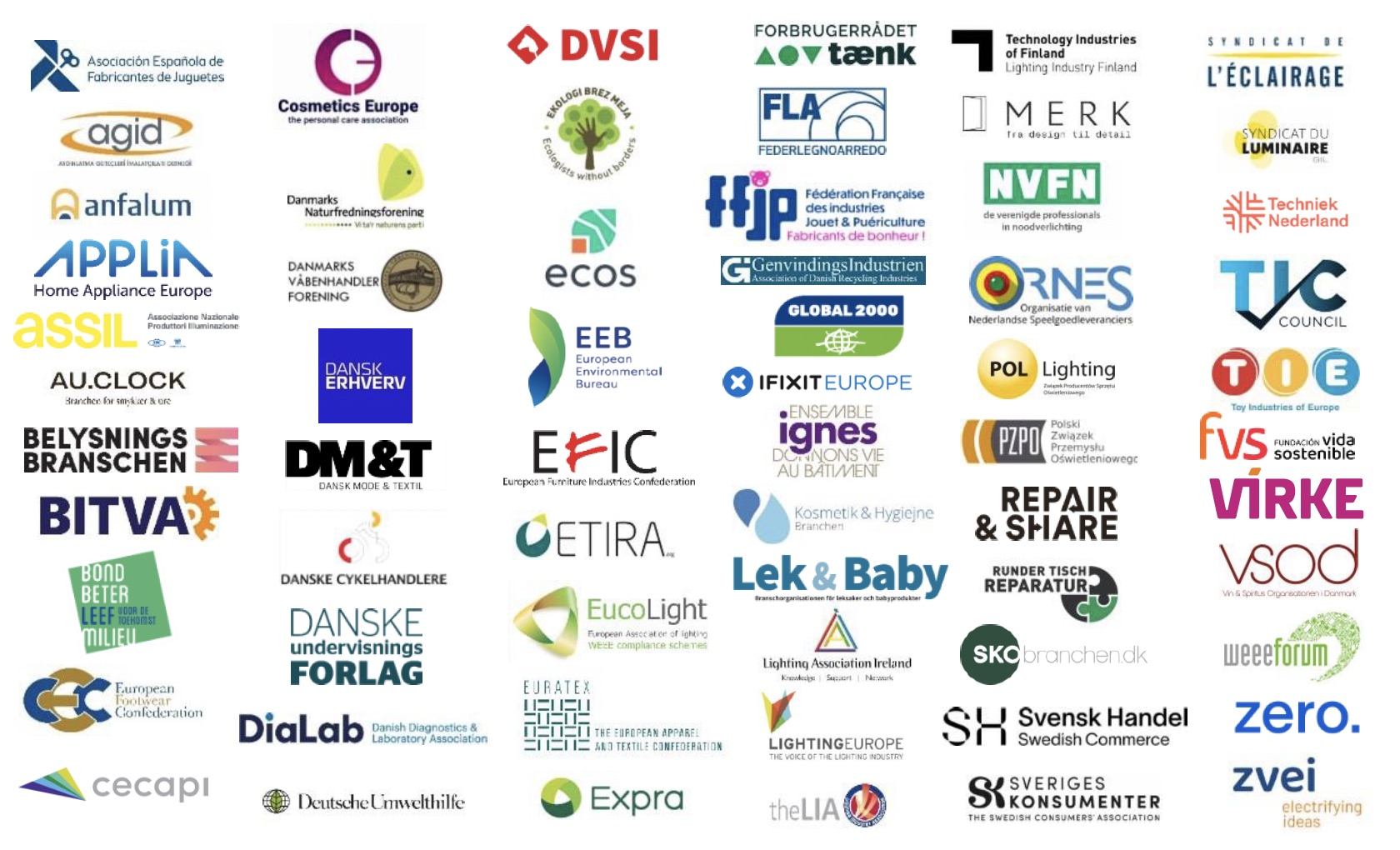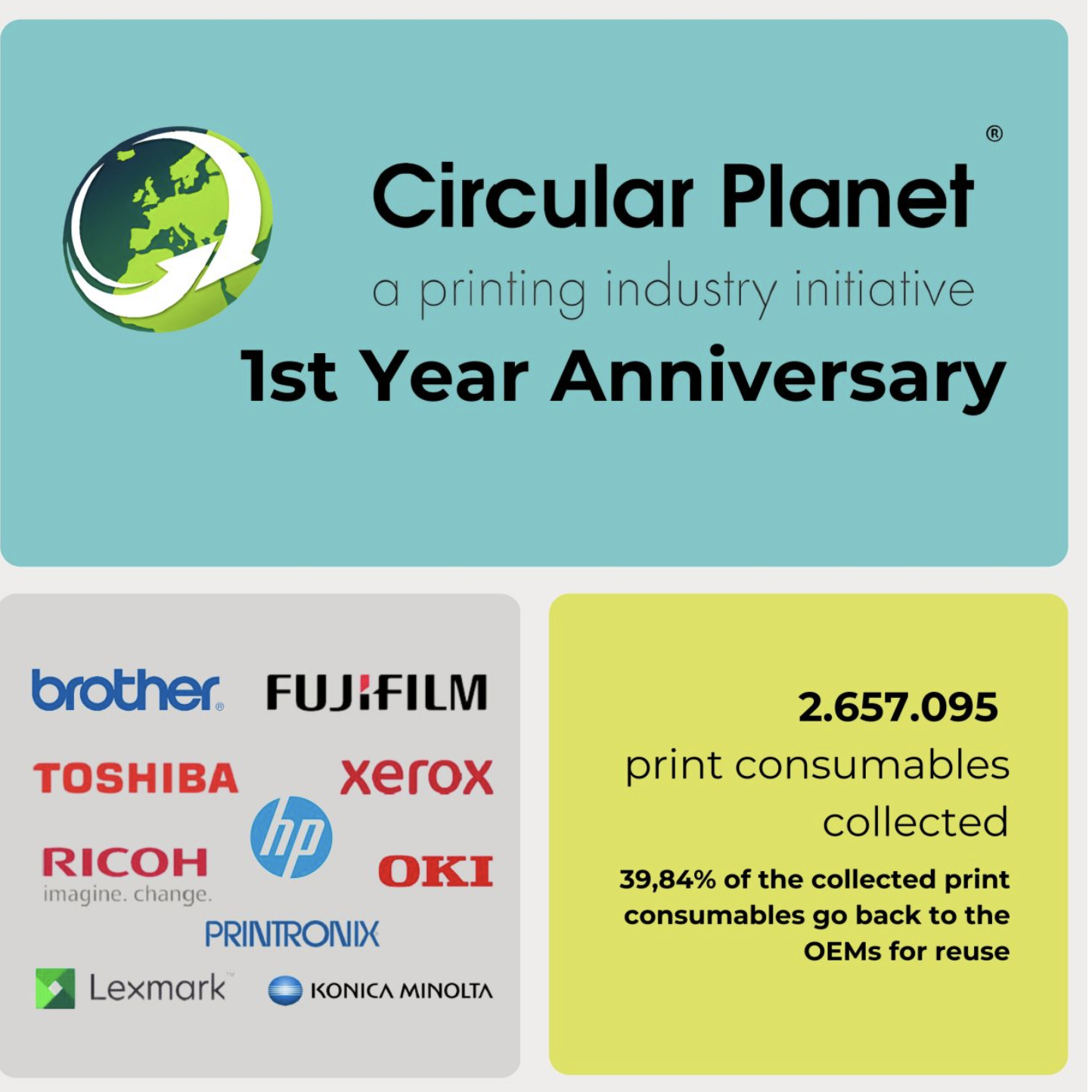ETIRA joins coalition calling for stronger EU rules on online marketplaces
September 18, 2025

E-commerce has transformed the way Europeans buy everything from toys to tech to printer cartridges. Yet behind the convenience of a click lies a growing risk: unsafe and non-compliant products entering the EU market without proper oversight.
Every year, billions of small parcels arrive in the EU from third countries. According to the European Commission, 4.6 billion parcels under €150 entered the EU in 2023. Many of these bypass EU safety and compliance checks, exposing consumers to unsafe products, fake labels, and goods that do not meet sustainability requirements. In the printing sector, this includes toner and ink cartridges sold online without meeting EU safety, chemical or recycling rules.
Marketplaces Escape Accountability
Under current EU law, online marketplaces are not recognised as economic operators. This means they are not legally responsible for verifying compliance of products sold by third-country sellers on their platforms. They act only if notified of violations. Existing laws, such as the Digital Services Act (DSA) and the General Product Safety Regulation (GPSR), have not closed this gap.
Key Recommendations
To protect consumers, the environment, and fair competition, a coalition of 63 organisations – including ETIRA – calls for decisive action:
-
Mandatory EU economic operator for every product sold into the EU.
-
Recognition of marketplaces as economic operators responsible for third-country sales.
-
Enhanced obligations for marketplaces to verify compliance, ensure traceability, and uphold Extended Producer Responsibility (EPR).
-
Improved traceability via integration of EU databases and the Digital Product Passport.
-
Stronger customs checks and the swift abolition of the €150 de minimis exemption.
-
Reinforced enforcement resources for market surveillance and customs authorities.
A Call to Action
Closing these loopholes is essential to safeguard consumers, protect the environment, and ensure fair competition for businesses playing by the rules. For Europe’s remanufacturers, this is not only a question of fairness but also of sustainability: compliant, reusable cartridges should not be undercut by non-compliant imports that evade EU law.
ETIRA urges EU policymakers to act swiftly. Stronger rules will not only protect consumers but also support Europe’s circular economy and create a level playing field for responsible businesses.
Read all details and the full declaration here.
Tags
CircularEconomyFairCompetition
OnlineMarketplaces
ProductCompliance
Circular Planet: A Closed-Loop Farce Disguised as Sustainability?
January 22, 2025

Circular Planet, the much-celebrated OEM-led cartridge collection initiative, recently marked its first anniversary, hailing the collection of 2.6 million print consumables and boasting that nearly 40% were “sent back to OEMs for reuse.” On the surface, it seems like a sustainability success story, but upon closer inspection, this programme raises significant concerns.
What Does “Reuse” Actually Mean?
The term “reuse” is at the heart of Circular Planet’s claims, but its meaning is far from clear. Does it mean cartridges are reused as cartridges — cleaned, refilled, and returned to market? Or does it refer to the mere recycling of parts? The lack of clarity leaves room for significant greenwashing.
Moreover, sending 40% of the collected cartridges “back to OEMs” does not guarantee they are reused in any meaningful way. OEMs could just as easily dismantle, recycle, or even discard these cartridges without ever returning them to their intended purpose. Without transparency or third-party oversight, these claims of “reuse” seem hollow at best and misleading at worst.
Numbers That Don’t Add Up
Circular Planet’s collection of 2.6 million cartridges represents less than 1% of the estimated 300–400 million OEM cartridges placed on the European market annually. Of those, only around one million cartridges were supposedly “reused” — a figure that pales in comparison to the programme’s lofty sustainability rhetoric.
And what about the logistics? The idea of cartridges collected in southern Spain being sent to the Netherlands, processed at a Polish facility, and then returned to the original printer in Spain raises serious questions about economic, environmental, and social benefits. Is this truly circularity, or just a wasteful shuffle masked as sustainability?
Undermining the Reuse Sector
For over 25 years, independent remanufacturers have championed true circularity by reusing cartridges multiple times, reducing waste and lowering environmental impact. In contrast, Circular Planet centralises cartridge returns to OEMs, cutting off access to high-quality reusable cores for the independent sector.
For every cartridge collected under Circular Planet, one less cartridge is available for independent remanufacturers, who have long demonstrated their commitment to reducing the environmental footprint of print consumables. This monopolisation of the cartridge lifecycle undermines open circularity and exacerbates the supply shortage, leaving smaller players in the reuse sector struggling to survive.
A Veil for Unfair Competition?
OEM control of the cartridge collection and reuse process raises serious questions about anti-competitive practices. By monopolising access to used cartridges, OEMs can restrict independent remanufacturers from competing, stifling consumer choice and driving up costs. This lack of competition benefits no one except the OEMs themselves.
Is this a collaborative sustainability effort, or simply a cartel-like operation disguised as an environmental initiative? The absence of freely available empty cores and transparent pricing reinforces these concerns.
The Way Forward
Circular Planet’s first year has revealed what’s possible — and what’s problematic. If the programme is to genuinely contribute to a sustainable future, it must redefine its approach:
- Clarify “Reuse”: The term must unequivocally mean reuse as a cartridge, not mere recycling or disposal of parts.
- Ensure Transparency: Independent audits must verify the fate of collected cartridges, holding OEMs accountable.
- Collaborate with the Reuse Sector: Circularity must involve all stakeholders, not just a monopolistic few.
At ETIRA, we call for a balanced approach that upholds the principles of the circular economy, ensuring sustainability is not just a corporate PR exercise. The next chapter of Circular Planet must be about inclusivity and genuine environmental stewardship. Let’s hold them accountable to that standard.